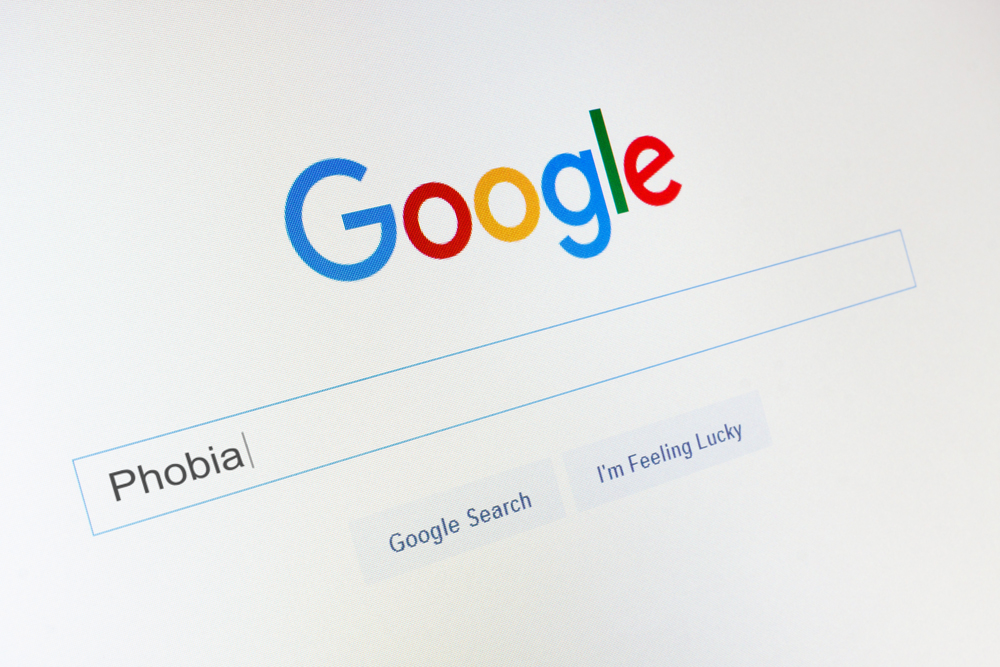

Where can I find out more about my phobia?
If you go onto google.com and search under the word ‘phobia’, you might come across the website www.phobialist.com. This lists every type of phobia that doctors have ever diagnosed, named and recorded. Currently there are over 50 on there – under the letter ‘A’ alone. For those of you interested, first on the list is ‘Ablutophobia’, which is a fear of washing or bathing. Last on the list is zoophobia, which is a fear of animals.
In between ablutophobia and zoophobia, you will find a whole host of conditions that range from the highly unusual to the downright odd. Peladophobia is the fear of bald people. Octophobia is the fear of the number 8. Nostophobia constitutes a fear of returning home. People who suffer from Aulophobia have a fear of flutes, while the Zemmiphobe suffers from a fear of the great mole rat.
If nothing else, this goes to show one fact for certain. Phobia sufferers tend to have a dread fascination with their own fear. Their phobia occupies their thoughts so constantly and on such a daily basis that they are always trying to learn more about their condition. A part of this is the insight that additional knowledge may help them to manage their phobia better. Another aspect is that the more they read about other people with their phobia, the less self-conscious they feel and the more confident they feel about seeing a doctor.
Should I go online?
When it comes to this desire to learn more about their condition, dentophobics are no different. Suffering from a phobia can be a lonely and isolating experience. A quick search on the internet will reveal thousands of message boards where people exchange experiences, exchange messages of support, and exchange ideas about managing their dental phobia.
One of the problems that this raises is just how much phobia sufferers are helping themselves and just how much they are allowing their condition to prey on their mind. And of course, information on the internet is not regulated in every case – so phobia sufferers do not always know whether the advice, guidance and support they are receiving is valid or right for them. Often, the stories that phobia sufferers read on the internet only make them worry more about their own condition.
What does this mean for dentophobia?

Dentophobia is different to a lot of other phobias in that it isn’t concerned with a fear that you can avoid. Sufferers are in a classic Catch-22 situation. They can choose to suffer the anxiety of facing their fear. Alternatively, they avoid the object of their fear (the dentist), in which case their teeth deteriorate and they eventually have to go to the dentist anyway. Whichever choice they make, they are likely to suffer stress and worry over their decision.
When you are trapped in this kind of dilemma, knowledge is not always a powerful thing. It can upset you even more, make your decision-making even harder and raise your anxiety levels even higher.
Where can I get help?
Most professionals will recommend that you talk to a doctor or a dentist about your dental phobia, rather than trying to manage it yourself. In the past, because so many types of phobia existed, it was difficult for members of the medical profession to understand how to treat (or even diagnose) each individual phobia. How do you treat xanthophobia for example – the fear of the colour yellow?
This naturally meant that phobia sufferers were compelled to try and manage their own condition, develop their own coping strategies and get help where they could.
Now that phobias are better understood and classified more clearly, the levels of support you can receive from the dental and medical professions are exceptional. Phobias are now much easier to understand and much more effectively treated. In fact, the success rate for treating them is very high.
For many people, gaining access to professional support can often by the first step in feeling capable of facing their phobia. Talking to your dentist or doctor will not only give you access to their advice but also to other services available to sufferers, such as relaxation therapies and medication.
On the other hand, gaining access to the internet can often be the first step in exacerbating a phobia and ‘overdosing’ on scare stories and inaccurate information.
Is there a support group I can join or speak to?
You could try speaking to the Anxiety UK, a national Chartity helping people with anxiety. You can reach them by calling 03444 775 774 – Mon-Fri: 9:30am – 5.30pm, or via email at support@anxietyuk.org.uk

